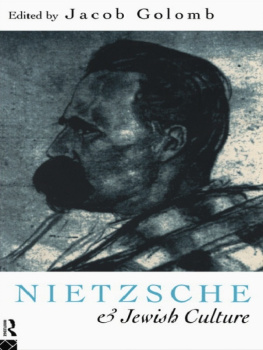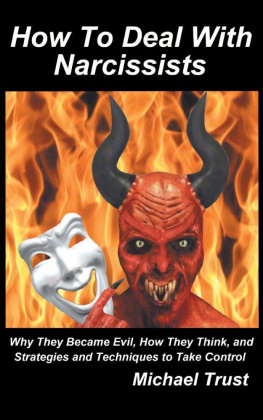Elan Golomb - Trapped in the Mirror: Adult Children of Narcissists in Their Struggle for Self
Here you can read online Elan Golomb - Trapped in the Mirror: Adult Children of Narcissists in Their Struggle for Self full text of the book (entire story) in english for free. Download pdf and epub, get meaning, cover and reviews about this ebook. year: 2012, publisher: William Morrow & Company, genre: Children. Description of the work, (preface) as well as reviews are available. Best literature library LitArk.com created for fans of good reading and offers a wide selection of genres:
Romance novel
Science fiction
Adventure
Detective
Science
History
Home and family
Prose
Art
Politics
Computer
Non-fiction
Religion
Business
Children
Humor
Choose a favorite category and find really read worthwhile books. Enjoy immersion in the world of imagination, feel the emotions of the characters or learn something new for yourself, make an fascinating discovery.

- Book:Trapped in the Mirror: Adult Children of Narcissists in Their Struggle for Self
- Author:
- Publisher:William Morrow & Company
- Genre:
- Year:2012
- Rating:4 / 5
- Favourites:Add to favourites
- Your mark:
- 80
- 1
- 2
- 3
- 4
- 5
Trapped in the Mirror: Adult Children of Narcissists in Their Struggle for Self: summary, description and annotation
We offer to read an annotation, description, summary or preface (depends on what the author of the book "Trapped in the Mirror: Adult Children of Narcissists in Their Struggle for Self" wrote himself). If you haven't found the necessary information about the book — write in the comments, we will try to find it.
Elan Golomb: author's other books
Who wrote Trapped in the Mirror: Adult Children of Narcissists in Their Struggle for Self? Find out the surname, the name of the author of the book and a list of all author's works by series.
Trapped in the Mirror: Adult Children of Narcissists in Their Struggle for Self — read online for free the complete book (whole text) full work
Below is the text of the book, divided by pages. System saving the place of the last page read, allows you to conveniently read the book "Trapped in the Mirror: Adult Children of Narcissists in Their Struggle for Self" online for free, without having to search again every time where you left off. Put a bookmark, and you can go to the page where you finished reading at any time.
Font size:
Interval:
Bookmark:
in the
M IRROR
C HILDREN
OF N ARCISSISTS
IN T HEIR
S TRUGGLE FOR
S ELF

To my mother,
whose last words before an unexpected death were,
I have to learn how to assert myself.
T here is a group of unsung victims whose number is very great. They often do not seek the help they need because they do not recognize that they suffer from a problem for which there is a solution. These are the children of narcissistic parents. I know their plight from the inside since I am one of them.
A friend asked me, What are narcissists? Arent they people who think themselves special? The answer to this is yes and no. All healthy people regard themselves as special, unique beings capable of achievement and worthy of love, and it is no coincidence that this is exactly the way their parents saw them during their formative years. People who are relatively free of narcissistic traits (most of us have some) do not attempt to place themselves above others. They are unconcerned with such comparisons. They stay in touch with their feelings and try to do their personal best. Their standards are internal and realistic since they have a good idea of who they are and what they can accomplish (such objectivity is not insignificant). They are not free of idealistic wishes and dreams.
Narcissists are wholly different. They unconsciously deny an unstated and intolerably poor self-image through inflation. They turn themselves into glittering figures of immense grandeur surrounded by psychologically impenetrable walls. The goal of this self-deception is to be impervious to greatly feared external criticism and to their own roiling sea of doubts.
This figure of paradox needs to be regarded as perfect by all. To achieve this, he or she constructs an elaborate persona (a social mask which is presented to the world). The persona needs an appreciative audience to applaud it. If enough people do so, the narcissist is relieved that no one can see through his disguise. The persona is a defensive schema to hide behind, like the false-front stores on a Western movie set. When you peer behind the propped-up wall, you find nothing. Similarly, behind the grandiose parading, the narcissist feels empty and devoid of value.
Because his life is organized to deny negative feelings about himself and to maintain an illusion of superiority, the narcissists family is forcibly conscripted into supporting roles. They have no other option if they wish to get along with him. His mate must be admiring and submissive to keep the marriage going and his children will automatically mold themselves into any image that is projected upon them.
Here the tragedy begins. A narcissist cannot see his children as they are but only as his unconscious needs dictate. He does not question why his children are incredibly wonderful (better than anyone elses) or intolerably horrible (the worst in all respects) or why his view of them ricochets from one extreme to another with no middle ground. It is what they are.
When he is idealizing them, he sees their talents as mythic, an inflation that indicates they are being used as an extension of his grandiose self. When he hates them and finds their characteristics unacceptable, he is projecting hated parts of himself onto them. Whether idealizing or denigrating, he is entirely unaware that what he sees is a projection and that his views are laying a horrible burden on his child.
It is uncanny to observe how early the process of projection begins. Before the child is conceived, roles are already assigned in the narcissists mind to the flesh of his flesh. The expected characteristics are confirmed by subtle actions of the fetus in the womb, and when the baby arrives the parent starts ratifying his projections through his interactions with the child.
For example, a narcissistic father was able to stop experiencing feelings of weakness as his own by finding them in the personality of his four-week-old daughter. He never questioned the validity of his perceptions. Such thoughts would occasionally reappear, only to be pushed aside and defended against by focusing on others flaws, including those of his child. He buttressed his argument by judging her physical movements feeble and low in energy as well. Clearly, she was biologically inferior. The babys characterization stuck and her fate was sealed.
The mother duplicated her mates view, unconsciously suppressing doubts and contradictory perceptions. Her thinking was influenced by the fact that her husband could only accept her when she agreed with him. She was in love with him at the time and very much wanted to please. It is worth noting that a person who marries a narcissist often does so to augment low self-esteem by amalgamating his or her ego with that of one who radiates greatness. They are excessively threatened by their mates potential rejection and will readily give the required responses.
This child grew up according to parental blueprint. She became an overly compliant person, often turning to her narcissistic father to make her decisions. She took up her mothers profession and her mothers submissive role as the appropriate way to express femaleness and to relate to men. In doing so, she assumed the role that her narcissistic father could accept in a woman.
One hallmark of the child of a narcissist is that these children tend to take values wholesale from the parent rather than tailor them to fit their own personalities. Narcissists appreciate carbon-copy children, since any change or difference from their prototype is experienced as a criticism.
The young woman became the perfect daughter, obediently expressing her parents nouveau riche values. She played tennis, took sailing lessons, spoke French, and summered in Europe. She was not outstanding in any of her acquired skills, probably because her participation lacked passion. Her whole self was not involved in anything she did. She was upset that no great talent ever emerged from her efforts. She was somewhat overweight although attractive, but rarely dated. None of the young men she encountered could measure up to her dad.
Still, she was remarkably agreeable, always smiling and nodding, suspiciously free of malice. In fact, she was rather boring. Inexplicably, this paragon of pleasantness came to be troubled by mounting feelings of rage. She was confused. Why should she be angry if all was so perfect in her world? She had never perceived anything damaging in the pressures placed upon her to become a polished showpiece. Such thoughts were taboo.
Her rage became uncontrollable. It took the form of world destruction fears in which everything was going to be blown up in a nuclear holocaust. This obsession reflected a projection of her repressed explosive feelings. Fortunately, these fears drove her into therapy. Her parents found it upsetting to accept that she needed help since this reflected upon their adequacy as parents. Their daughter had to be on the brink of insanity before she or anyone else in the family could admit that something wasnt right.
The offspring of narcissists grow up fulfilling their assigned roles. They may sense that they are in a state of falsehood, but do not know what to do about feelings of nonauthenticity. They try all the harder to become what they are supposed to be, as if their feelings of uneasiness come from an improper realization of their role. If their parents see them as miserably deficient, from the shape of their bodies to the power of their minds, that is what they become. If they were portrayed to themselves as great muckamucks, especially if they have innate ability to fulfill a powerful role, they become the movers and shakers of society.
Font size:
Interval:
Bookmark:
Similar books «Trapped in the Mirror: Adult Children of Narcissists in Their Struggle for Self»
Look at similar books to Trapped in the Mirror: Adult Children of Narcissists in Their Struggle for Self. We have selected literature similar in name and meaning in the hope of providing readers with more options to find new, interesting, not yet read works.
Discussion, reviews of the book Trapped in the Mirror: Adult Children of Narcissists in Their Struggle for Self and just readers' own opinions. Leave your comments, write what you think about the work, its meaning or the main characters. Specify what exactly you liked and what you didn't like, and why you think so.





